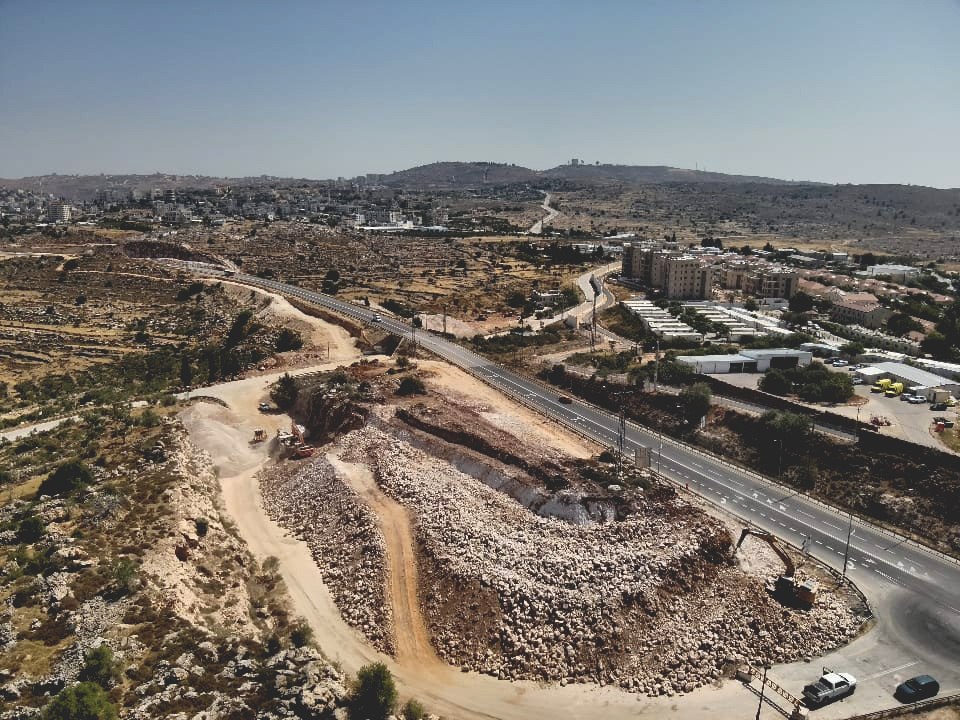$270M Route 60 Upgrade: Boosting Israeli Control
With a price tag nearing $270 million, the central highway through Binyamin will be doubled to improve security, mobility, and national presence. Ministers call it a strategic breakthrough for Israeli sovereignty.

In a major show of support for infrastructure and settlement development, senior Israeli ministers gathered yesterday in the Binyamin region to mark the official launch of a billion-shekel project to double and upgrade Route 60—one of the most vital highways in Judea and Samaria.
The event, held at the start of construction works, was attended by Finance Minister Bezalel Smotrich, Defense Minister Israel Katz, Transportation Minister Miri Regev, Binyamin Regional Council head and Yesha Council chairman Israel Gantz, and representatives from the local settlements. Together, they declared that the long-awaited expansion of the main north-south artery was not only a transportation upgrade but a strategic act to strengthen Israel’s grip on the region.
The plan involves widening the 20-kilometer stretch between the Sha’ar Binyamin Junction and the British Police Junction to two lanes in each direction, with full-length lighting and a physical barrier separating traffic. The road is also being prepped for a future public transportation lane. Significant engineering work will improve road gradients and safety measures, while underground infrastructure will include electricity, fiber optics, and security reinforcements in coordination with Israel’s utility companies. The northern extension of the road, from the British Police Junction toward Eli and Tapuach Junction, is currently in advanced planning stages.
According to officials, the project is expected to take three to four years to complete and represents one of the largest investments in road development ever made in the Binyamin area. Its total cost is estimated at nearly one billion shekels.
Speaking at the event, Defense Minister Israel Katz emphasized the deep historical and national connection to the area, calling Route 60 a "central component of daily life in Judea and Samaria" that has grown increasingly congested due to regional growth and development. “We are acting here because we believe in the Jewish historical right to this land,” he said. “The road’s expansion is a top priority for the government and the defense establishment alike.”
Katz noted that the project is part of a broader transportation revolution led by the government over the past decade, one that has connected periphery communities to the national infrastructure grid and reinforced Israel’s physical and political presence across the land.
Finance Minister Smotrich described the expansion of Route 60 as “much more than a transportation solution.” He called it “another link in the chain of a civilian and settlement revolution,” and said the state is pouring billions into roads, infrastructure, and development to strengthen Israeli sovereignty and guarantee security and accessibility for all Israeli citizens—including those in Judea and Samaria.
Transportation Minister Miri Regev said the road project was both strategic and moral. “Today, we are changing reality,” she said. “This project will shorten travel times, save lives, and strengthen security. From the beginning of my tenure, I made it a priority to invest heavily in neglected regions—not out of politics, but out of a genuine commitment to safety, equity, and national unity. Upgrading Route 60 is a powerful expression of this policy.”
Israel Gantz, head of the Binyamin Regional Council, said that road development is both a technical necessity and a political statement. “The expansion of our roads is a condition for this region’s growth and a practical expression of sovereignty and state responsibility,” he said. “This project would not have been possible without the support of the Israeli government and its ministers.”
He thanked Minister Smotrich for advancing the initiative during his time as transportation minister and again in his current role, praised Minister Regev for her active partnership, and acknowledged Defense Minister Katz for shifting the government’s approach to regional security and development.